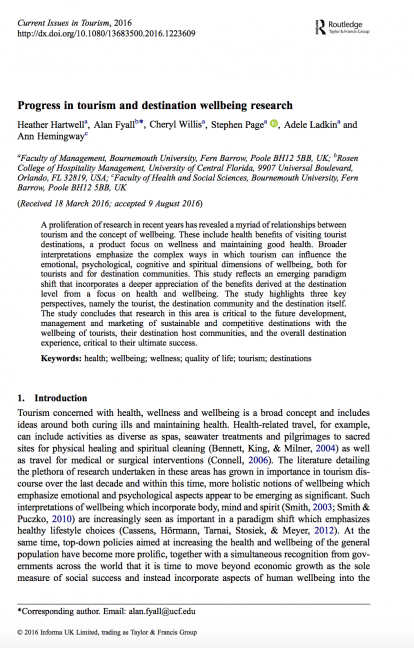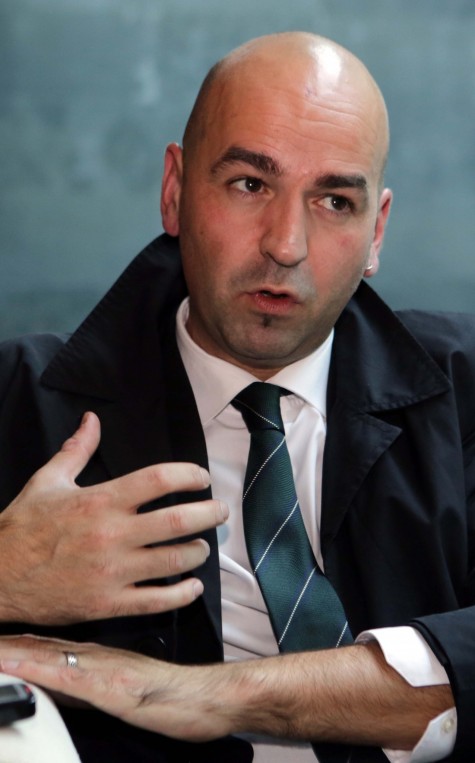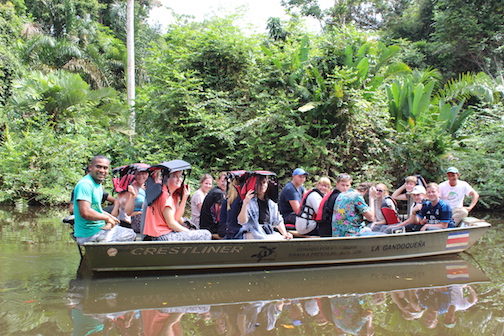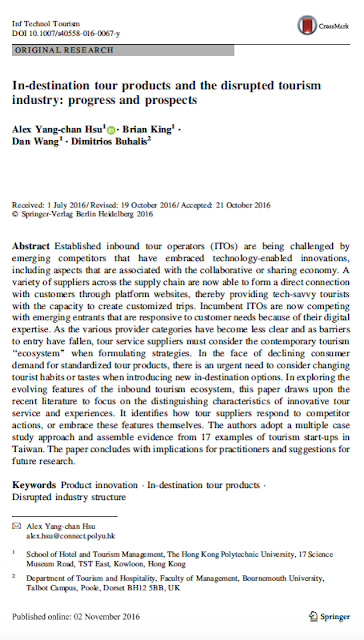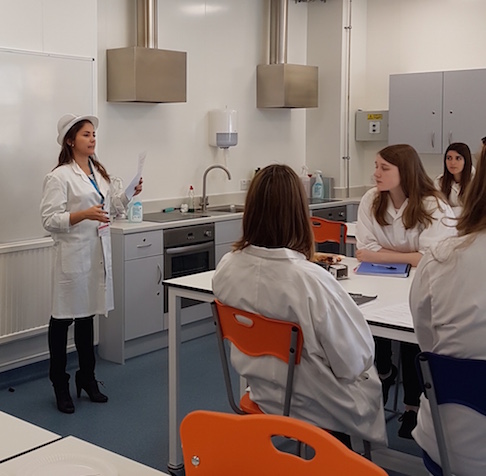The Future of Tourism in Post-Brexit Britain
Exploring Opportunities and Meeting Challenges at National and Local Levels 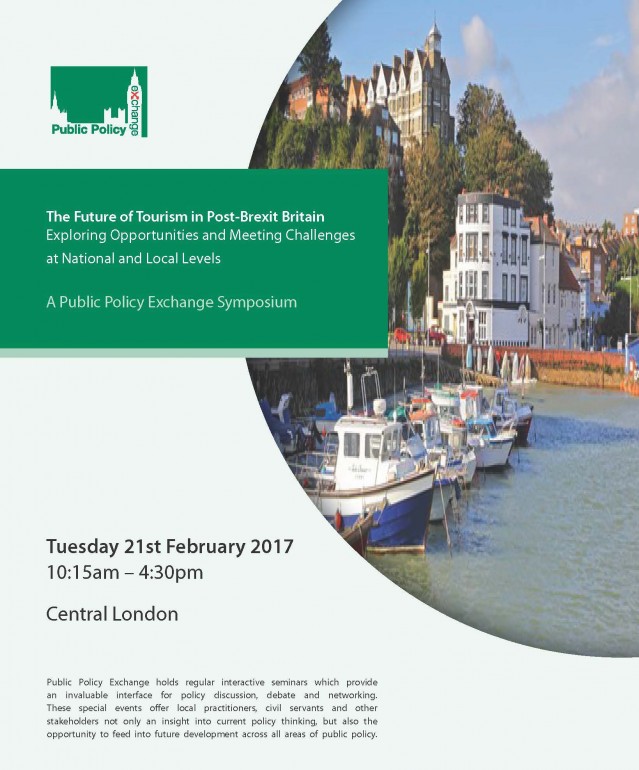
Central London Tuesday 21st February 2017
KEY SPEAKERS:
Deirdre Wells OBE Chief Executive UKinbound
Professor Adam Blake Professor of Economics & Econometrics, Faculty of Management Bournemouth University
Giles Smith Deputy Director for Tourism, Heritage and Cultural Diplomacy Department for Culture, Media and Sport
Patricia Yates Director Strategy and Communications VisitBritain
Ufi Ibrahim Chief Executive British Hospitality Association
Kurt Janson Director Tourism Alliance
Esther Pearson Director South West Coast Path Association
Event Details Website Register to Attend
Despite Britain’s recent decision to leave the EU, tourism continues to be a key component of economic growth in the UK, being directly responsible for 1.6 million jobs across the country. According to latest statistics from the ONS, the number of visitors to the UK by overseas residents in August 2016 was 3.8 million, an increase of 2% when compared with August 2015. Overseas residents spent £2.6 billion in the UK during their visits, an increase of 4% compared to figures of the previous year. These figures have been linked to the fall in the pound following the referendum, which has made holidays in the UK cheaper for overseas visitors.
Last year was record-breaking, with tourism generating over £62 billion in Gross Value Added revenue to the British economy. Moreover, the rate of growth in visits to many regions within the country was faster than in London. However, with more than 50% of international visitor spending still in London and with Brexit reshaping the landscape, creating new opportunities in the short-term and challenges in the long-term depending on the agreement with EU, there is still more to be done to create balance in the sector and boost growth equally across the whole country.
Responding to these emerging challenges and opportunities, in August 2016 the Government published the ‘Tourism Action Plan’, a report setting out the Government’s next steps to make tourism more internationally competitive and resilient post-Brexit, while ensuring that its growth delivers for everyone.
As such, the action plan focuses on the following five areas:
- The tourism landscape: strengthening co-ordination and collaboration
- Skills: boosting apprenticeships and attracting more people to careers in tourism
- Common sense regulation: examining the scope for deregulation
- Transport: making it easier for visitors to explore by rail, bus and coach
- A GREAT Welcome: driving continuous improvements in our visa service
With local authorities playing a key role in the visitor economy due to its devolved nature, there is a need to ensure the way forward for local tourism to take full advantage of the benefits the country has to offer.
This very timely symposium is an invaluable opportunity for local authorities, tourism organisations and regional economic development agencies to examine the national strategy assess the post-Brexit tourism landscape and consider how to best deliver lasting tourism across the UK.
Delegates will:
- Assess the national outlook of tourism in post-Brexit Britain
- Explore new opportunities and ways to overcome new challenges
- Discuss funding allocations and new apprenticeship schemes to support small business
- Consider the regulatory framework and discuss the importance of commonsense regulation
- Evaluate the GREAT Welcome Campaign and explore ways to attract new tourists from key markets
- Examine the contribution of local councils in boosting tourism, developing local leadership and encouraging local entrepreneurship
- Participate in interactive discussions with leading practitioners and share best practice
I am pleased to advise you that we offer a 20% early registration discount off the standard delegate rates for all bookings received by the 13th January 2016. For further details about the symposium, please refer to the enclosed event brochure. Do feel free to circulate this information to relevant colleagues within your organisation.
In the meantime, to ensure your organisation is represented, please book online or complete and return the attached registration form at your earliest convenience in order to secure your delegate place(s).
Kind regards,
Conference Team
Public Policy Exchange
Tel: 020 3137 8630
Fax: 020 3137 1459
If you do not wish to receive further information regarding PPE events then click here.
